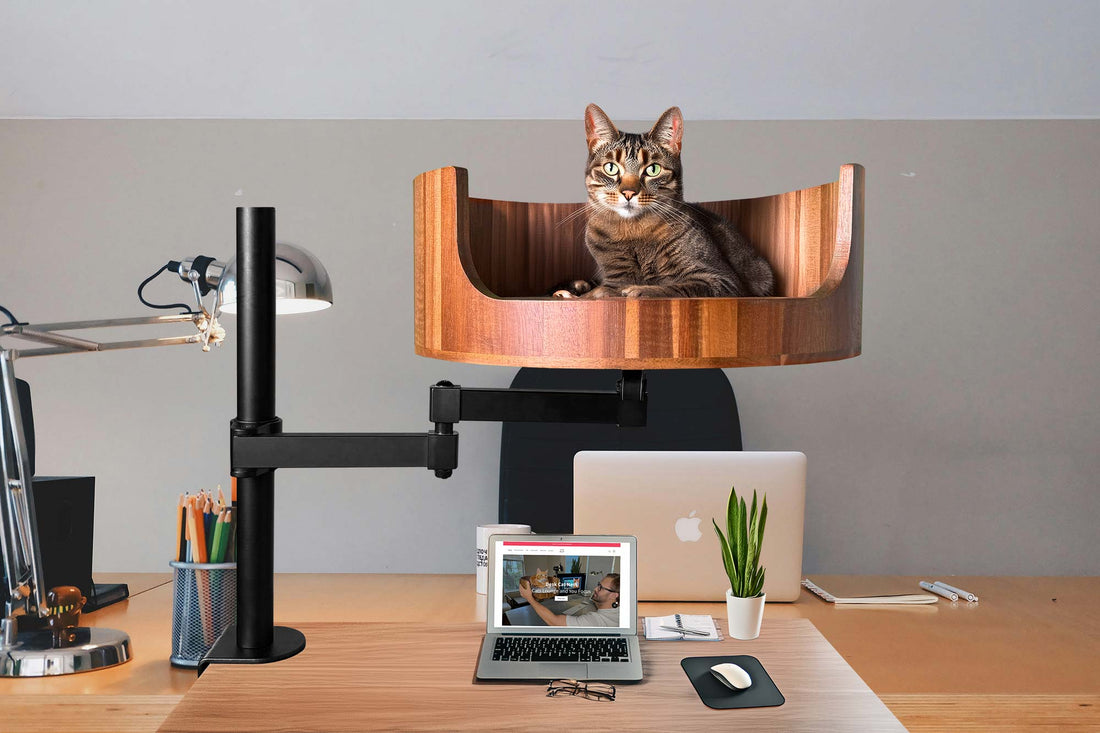
Why Does My 9 Month Old Cat Bite Me? Understanding Behavior
Share
Have you ever found yourself scratching your head wondering why your 9-month-old cat suddenly decides to sink their teeth into your arm while you're petting them? Understanding feline behavior can be a tricky task, especially when they exhibit behaviors like biting that leave you wondering what you did wrong. In this article, we will delve into the reasons why your 9-month-old cat may be biting you, exploring the various factors that could be influencing their behavior.
From play aggression to teething to feeling overwhelmed, there are many reasons why a 9-month-old cat may resort to biting their owner. By gaining a deeper understanding of these motivations, you can better address the root cause of your cat's behavior and help them overcome this challenging phase. Through exploring the psychology behind feline behavior and providing practical tips on how to handle biting incidents, you can create a harmonious relationship with your furry friend and build a strong bond based on trust and mutual understanding.
1. Cats may bite out of playfulness, fear, aggression, or overstimulation.
2. Understanding your cat's body language can help prevent bites.
3. Providing appropriate play opportunities and outlets for energy can reduce biting behavior.
4. Socialization and positive reinforcement training are key in shaping your cat's behavior.
5. Consulting with a veterinarian or animal behavior specialist can help address underlying issues causing biting.
Understanding Cat Behavior
Cats are known for their independent and sometimes unpredictable nature. Understanding cat behavior is essential in addressing any issues, such as biting. Cats may bite for various reasons, including fear, playfulness, territorial aggression, or overstimulation. By recognizing the triggers and cues that lead to biting behavior, cat owners can better manage and prevent such incidents.
Developmental Stage of a 9-Month-Old Cat
At 9 months old, a cat is considered a young adult. During this stage, cats undergo physical and behavioral changes as they transition from kittenhood to adulthood. Biting behavior in 9-month-old cats may be a result of teething, curiosity, or plain old adolescent mischief. It is crucial to provide appropriate outlets for play and mental stimulation to prevent boredom and potential biting incidents.
Communication through Biting
Cats communicate through various behaviors, including biting. When a cat bites, it may be trying to convey a message or express its emotions. For example, a cat may bite as a form of play, affection, or to establish boundaries. By observing your cat's body language and the context of the biting behavior, you can better interpret what your cat is trying to communicate.
Training and Socialization
Proper training and socialization play a crucial role in shaping a cat's behavior, including biting tendencies. Training methods such as positive reinforcement, redirection, and setting clear boundaries can help discourage biting behavior in cats. Additionally, early socialization with humans and other animals can help prevent fear-based aggression or excessive play biting in cats.
Seeking Professional Help
If your 9-month-old cat's biting behavior is persistent, aggressive, or causing harm, it may be beneficial to seek the help of a professional animal behaviorist or veterinarian. These experts can provide personalized advice and strategies to address the underlying causes of biting behavior and improve the overall well-being of your cat.
Desk Cat Nest FAQ
Why does my 9 month old cat bite me?
There could be several reasons why your 9 month old cat is biting you. Young cats, especially kittens, may bite as a form of play or to get your attention. It could also be a sign of aggression or fear. It's important to observe your cat's body language and behavior to understand why they are biting.
Will a Desk Cat Nest help reduce my cat's biting behavior?
A Desk Cat Nest can provide your cat with a safe and comfortable space to retreat to when they are feeling stressed or overwhelmed. By having their own designated space, your cat may be less likely to bite as a form of aggression or fear.
How can I train my cat to stop biting?
Training your cat to stop biting involves positive reinforcement, redirects, and understanding your cat's triggers. Consider consulting with a veterinarian or animal behaviorist for professional advice on how to address your cat's biting behavior.
Is a Desk Cat Nest suitable for all types of cats?
Desk Cat Nests are designed to accommodate cats of varying sizes and breeds. However, it's essential to consider your cat's individual preferences and behavior when introducing a new piece of furniture. Some cats may not be comfortable using a Desk Cat Nest, while others may greatly enjoy having their own space.
In conclusion, providing your 9 month old cat with a Desk Cat Bed can greatly reduce instances of biting behavior. Not only does the bed offer a comfortable and secure place for your cat to rest and play, but it also provides a dedicated space for them to retreat to when feeling stressed or overstimulated. By offering this safe haven, you can help curb aggressive tendencies and promote a healthier relationship between you and your feline companion. Don't hesitate to invest in a Desk Cat Bed for a happier and harmonious household.



















































